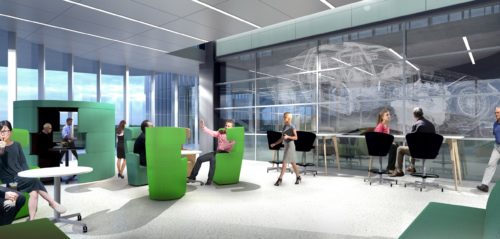In my last blog I outlined how UK automotive in 2016 is in an enviable position but must keep moving forward by innovating through new research and development if it is to continue to capture the future market share. Here, I want to turn to the other piece of the jigsaw that it’s fundamental we get right: Upskilling our current and future workforce so that we have the right people in place to fill the high-end, advanced engineering jobs this industry creates.
Earlier this year, Automotive Council UK set out how 5,000 jobs lay vacant in UK automotive due to current skills shortages. That’s a depressing statistic and something that is undermining future growth in the sector. The report finds that 20% of those unfilled vacancies are ‘critical’ and having a ‘significant impact’ on companies’ operations.
This is a challenge recognised nationally, regionally and by the sector. The UK government’s ‘Driving the Future Today’ strategy, launched in 2013, outlines four key priorities, one of which is investing in skills. On a regional level, our Local Enterprise Partnership covering the West of England has highlighted similar issues directly impacting on this part of the world; specific skills shortages in High Tech, Low Carbon and Advanced Engineering.

Here at the University this is where our plans for the Institute for Advanced Automotive Propulsion Systems (IAAPS) can come in. In addition to the industry-led experimental research that IAAPS can foster, our Institute will also provide world class training and development opportunities, helping to deliver the highly skilled engineers that our industry partners are crying out for.
Aligning neatly with the University’s own strategy for postgraduate education, we want IAAPS to be a training environment that nurtures research leaders of the future and upskills our current workforce. We’ll do this through a significant investment in new Masters and PhDs programmes, as well as through new apprenticeships.
And by developing this skills provision with our industry partners in-line with their needs, those going through our courses will be exposed to real world challenges, ensuring that their employability having graduated will be second to none.
Labour productivity for UK automotive is currently the highest in Europe, but sustained future growth will only continue if we plug the skills gap the industry is facing. IAAPS can help achieve this by training the next generation of advanced automotive engineers.
Steve Egan CBE is Vice-President (Implementation) at the University of Bath and the key contact for the University’s plans to develop IAAPS at the Bristol & Bath Science Park.
Respond